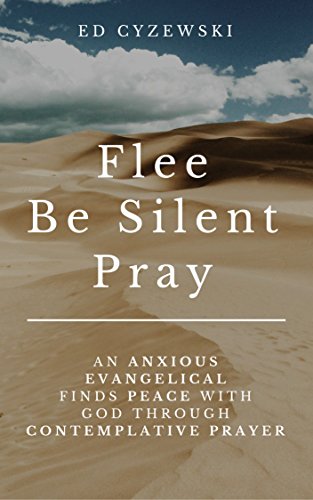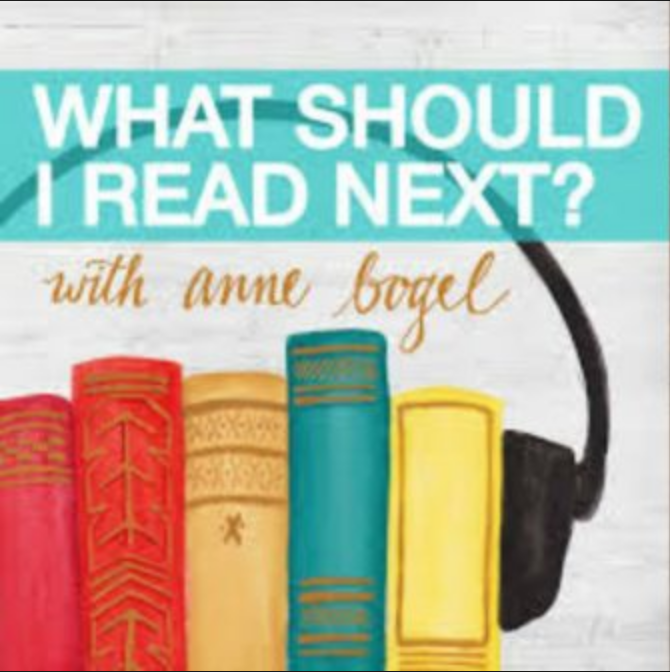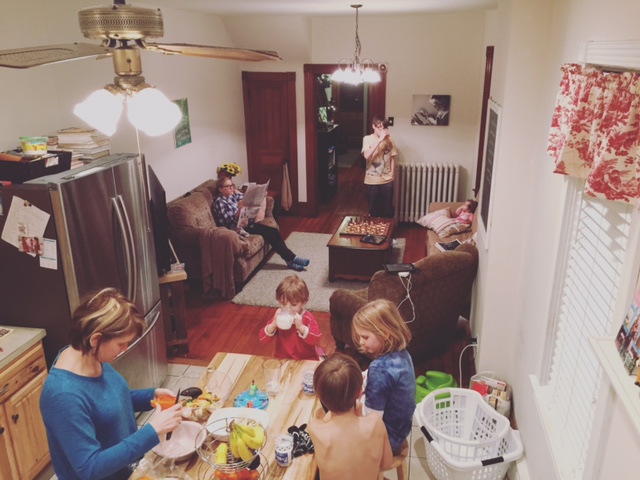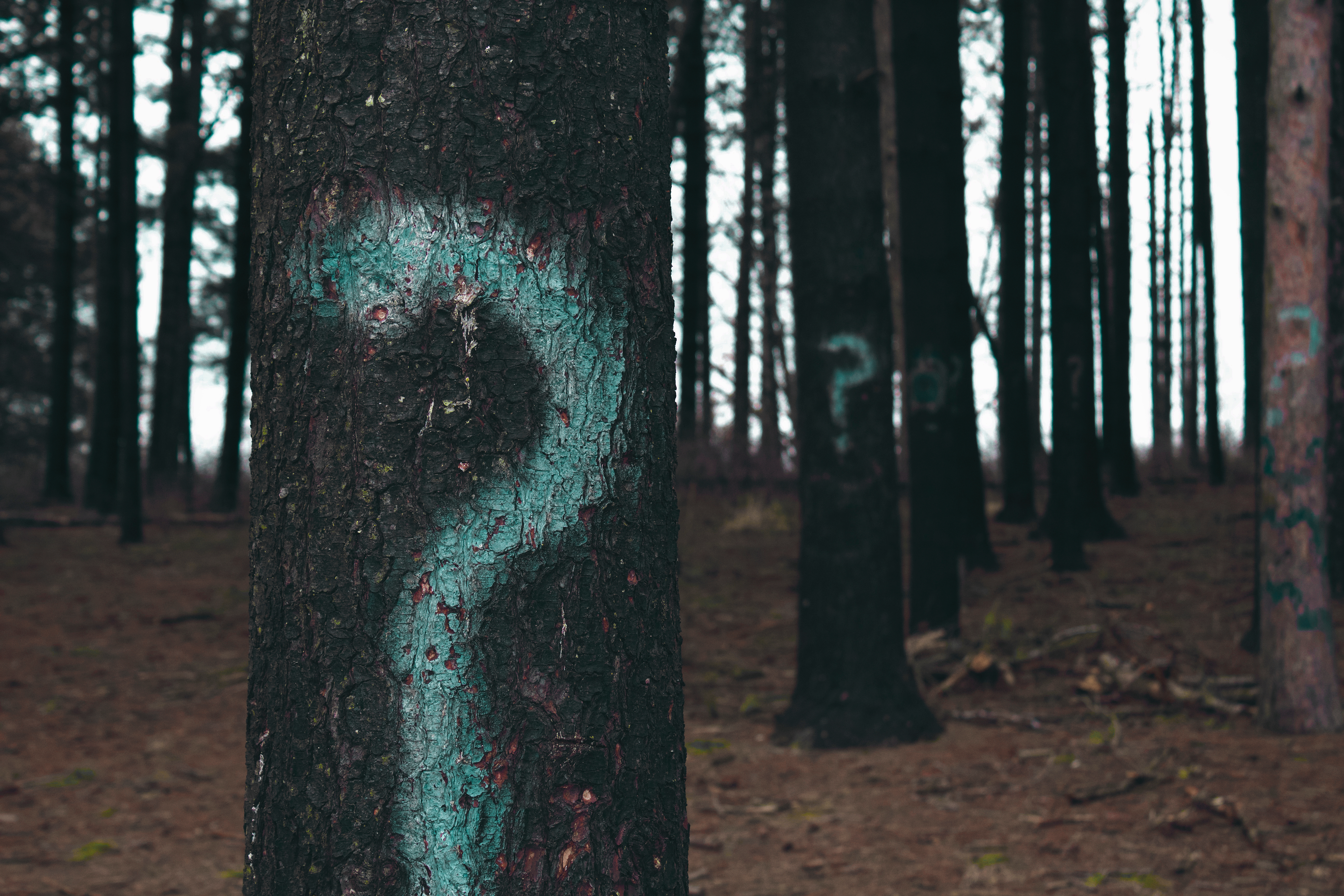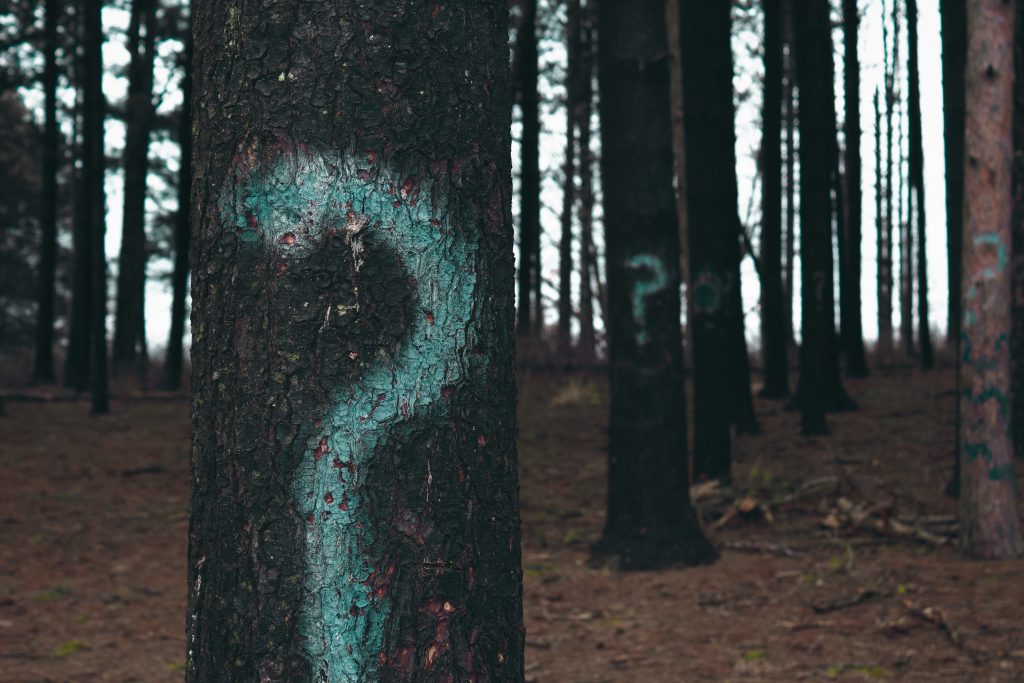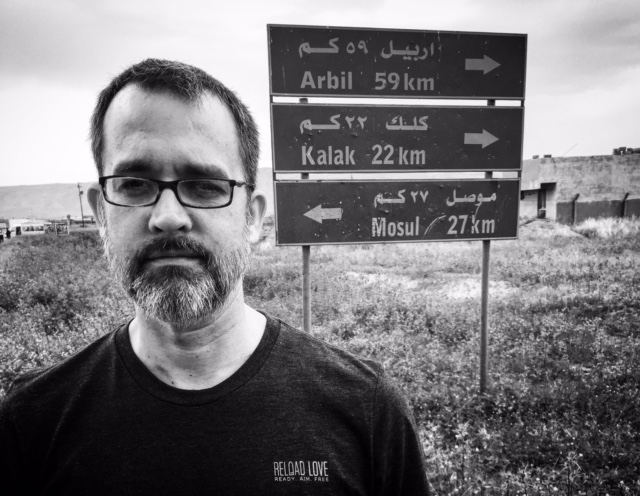“Come by tonight, any time after eight o’clock,” my Syrian refugee friend told me earlier in the day, so after I drop off an Uber fare in his part of the city around 8:30pm, I head for his house. The street is dark and quiet. The sun has only recently set. When I get out of the car, I can hear children playing a few streets over. Solitary fireworks go off in the distance.
I ring the doorbell, and I hear it echo inside the house. Everything seems quiet, but I wait. The narrow blinds bend upward as someone peeks through to see who is ringing their bell so late. It turns out to be a little someone, with tiny fingers. I hear one of his four boys shout something in Arabic. Everything in Arabic sounds urgent to me.
The door opens, and there he stands in a white undershirt, jeans, bare feet. He smiles a wide smile and I can see why he called me earlier in the week about finding a dentist that would accept his insurance to replace a missing bridge. We are still working on that one. We shake hands. He welcomes me in. I can tell they are eating, and immediately I feel guilty.
“Did I interrupt your dinner?” I ask.
“No, no, no. Come in,” he says. “Come in.”
His wife comes around the corner from the dining room and welcomes me with her kind, quiet eyes. She bows her head slightly. “Come,” she says. “Eat.”
Their four boys accompany me into the dining room like puppies, bouncing around and smiling up at me. The oldest leads the way, and when we arrive, and I see the spread of food on the floor and hear the Muslim prayers coming through the cell phone set up on the counter.
Of course, I think. It’s Ramadan. Is this why he invited me over after 8, so I could eat with them?
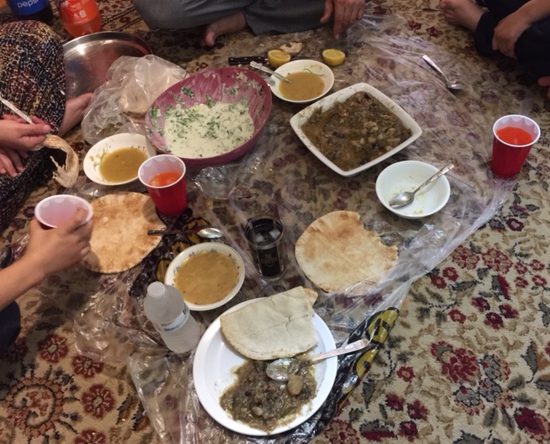
They are one week into their month of fasting from food and water during daylight hours. Now, they are enjoying their first meal of the day. To be honest, it smells amazing. But I just finished eating a celebratory meal with my own family not two hours before. We ate in honor of the last day of school.
“Sit, sit,” my friend insists, beckoning towards a space vacated by his oldest son, and as I try to figure out the politest way possible to tell them I don’t have to eat – I just finished eating dinner, I couldn’t possibly fit another thing in my gullet – his wife is filling a plate for me, mounding up all that delicious looking food into a huge serving. I sit on the floor along the clear plastic liner, and I am not very flexible, so sitting cross-legged isn’t the most natural position. She puts the dish in front of me – flat bread and some kind of stew or curry filled with vegetables and beef and a thick broth.
We eat mostly with our hands, mopping up the juices with the bread. I use a spoon they give me, when necessary. The boys have already finished. The prayers come to an end on the phone. We talk about work and how school is going. We try to creatively communicate words like “lamb” and “six-cylinder” and “dental insurance,” and every time we make a successful connection we laugh and smile, as if we have just learned each other’s language in its entirety. Then, we stumble through another sentence, another conversation. Communicating with each other is a determined act, a kind of fighting against the darkness, especially in these times.
My stomach is bursting from my previous dinner but the food is so good it’s not difficult to find room for it.
The boys laugh about something, and I can tell they’re laughing at me. I smile and shift awkwardly again on the floor.
“Okay,” I ask my friend. “What’s so funny?”
“You’re not used to sitting like that?” he asks with a small grin on his face. I realize I have been shifting my position every few minutes, trying to get comfortable. I laugh. The way they sit – it’s cross-legged, but it’s different, because their feet are tucked up under them. The boys laugh unreservedly now. I can’t do it. I can’t sit like that.
“No, no really. What happened to your table?”
“We only had it for a few weeks before I took it apart and got rid of it.”
“This is how you eat in Syria?” I ask.
“This is how we ate in Syria, on the floor,” he says, smiling, nodding, taking another large bite.
I nod and follow suit. I can’t imagine how wonderful this would taste after an entire day of not eating or drinking anything. It shows a lot of devotion, a willingness to fast for an entire month. I think my friend already looks like he has lost some weight, and only one week of Ramadan has passed.
“Do you miss Syria?” I ask. He nods, and for a moment his eyes well up. He clears his throat.
“The boys, they miss his mother especially,” his wife says.
“Their grandma?”
She nods. “Yes, their grandma. They Skype each week.”
The food is finished and my friend invites me onto the back porch. We sit on the couches on their covered cement slab. He takes out a cigarette and inhales a long draw, sighing out the smoke. He tells me about a new job he is trying out, driving for an egg company on the weekends. He asks my opinion on purchasing a more fuel-efficient vehicle. I explain to him the best way to find a dentist through his insurance, if they even cover dental, and promise to help him make calls next week.
Soon, his wife brings out coffee for us. Because I ask, they admit that it is difficult working where they do, in the hot dry-cleaners, when they cannot eat or drink all day during Ramadan. The coffee – it is more like espresso – is the color of dark chocolate and she serves it piping hot in tiny mugs with lots of sugar. The boys come out and the youngest takes his Big Wheel from the shed and rides up and down the sidewalk, playing with neighbors, their wheels rasping, their voices calling out to each other, alternating between Arabic and English. My friend tells me he’d like to find a place outside the city, now that they have a car, have jobs. He’d like to rent a place where he can have a garden, grow potatoes and carrots and … what is it called? Corn? Yes. Corn.
The night falls. The stars try to break through the city’s light pollution.
“I really have to go,” I say, finishing my coffee. “I have a lot more driving to do tonight.”
“No! No, Shawn, stay,” he insists, but this time I stand up. I thank them for dinner. They promise to have our entire family over soon. I tell them they don’t know what they’re wishing down upon themselves and they laugh. They wave to me as I walk back around the outside of the house to my car.
Every time I leave them, I feel I have been given so much. Every time I leave them, I feel they have given me a small gift of peace, a kind of shalom that is absent from so much of our culture these days.
It is good to have friends who live quiet, peaceful lives.
